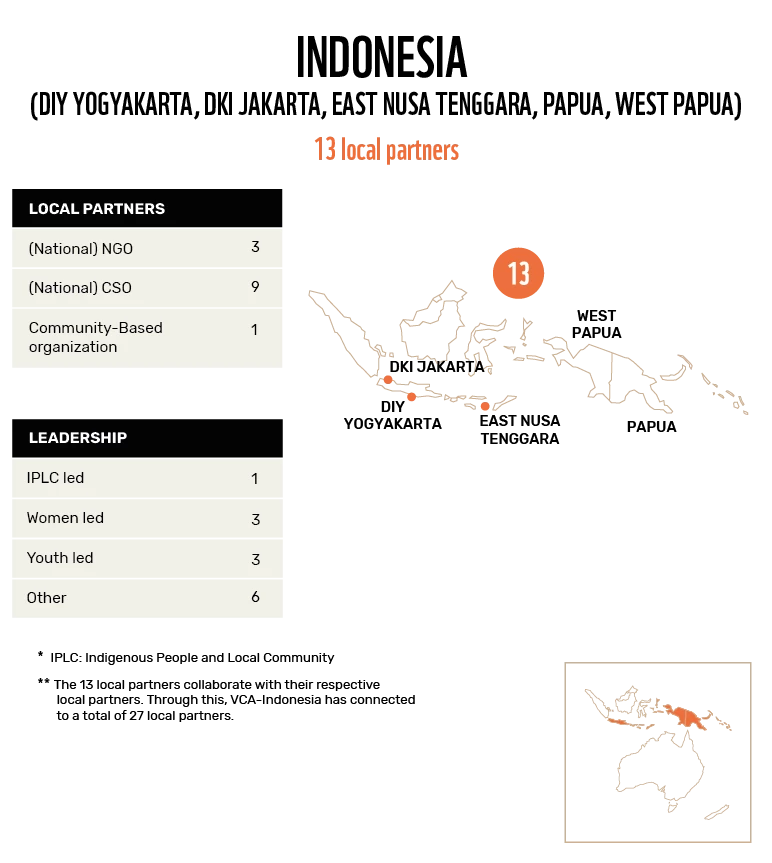Indonesia
The local people suffer from climate change and power dynamics that limit their access to natural resources.
People in Papua and West Papua face economic and ecological vulnerability
Papua and West Papua are home to the world's third-largest tropical forest and account for over 20% of Indonesia's remaining forested areas. The local people inhabit critical ecosystems and rely heavily on natural resources for their livelihoods.
However, their economic and ecological vulnerability is exacerbated by the looming threat of climate change and extreme weather events. Papua is particularly susceptible to the risk of flooding, presenting a grave challenge. For instance, the people of Asmat face the detrimental effects of flooding and salt intrusion, significantly impacting sago production and subsequently jeopardizing the food security and livelihoods of farmers.
Read more about the landscape (PDF).
What is the situation?
Despite residing in regions abundant in natural resources, the people of Papua are officially classified as 'poor'. This discrepancy arises from the absence of land tenure and recognition of indigenous rights. As a result, there is an unjust distribution and overexploitation of natural resources.
Permits for palm oil companies, for instance, have been issued without engaging in dialogue or seeking consensus with the communities residing in or around the affected areas. Insufficient governance and marginalization of local rights holders together with climate change and extreme weather events, will further perpetuate poverty, biodiversity loss, and resource degradation.
How can VCA support local partners?
The utilization of natural resources and their significance within indigenous communities vary due to the distinctive natural environment, socio-cultural factors, institutions, and customary rules of each community.
With the Voices for Just Climate Action (VCA) network we focus on identifying these local climate solutions, such as sustainable local food systems, innovative financial schemes, preservation of local wisdom, and effective governance of natural resources. Crucially, stakeholder buy-in is sought to ensure the adoption and implementation of these solutions. In addition, the network fosters shared understanding among different actors (government agencies, civil society- and community-based organizations) to advocate for policies that protect indigenous people's rights.
The VCA network consists of a diversity of local organizations in Indonesia.


